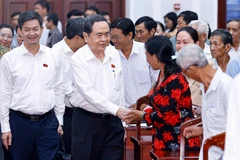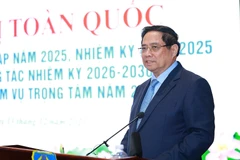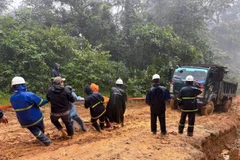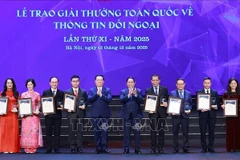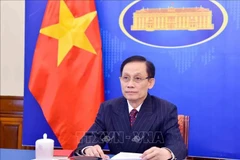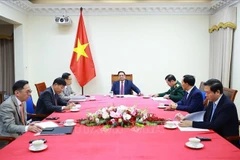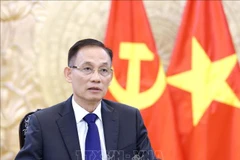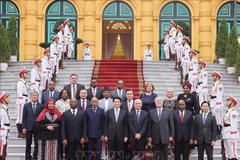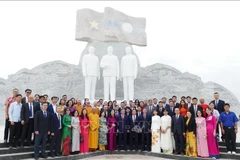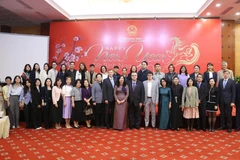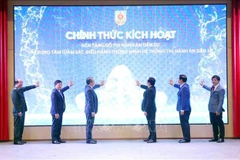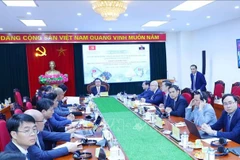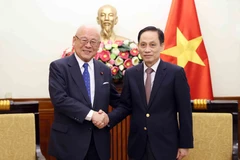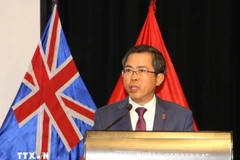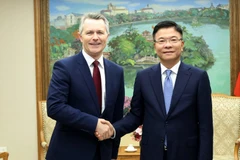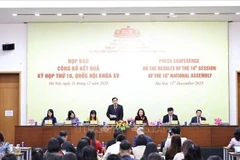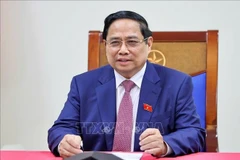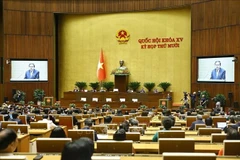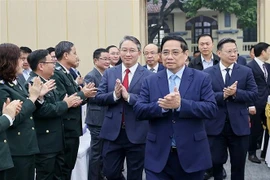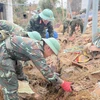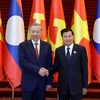Ina recent interview with the media, Deputy PM Minh, who also acts asForeign Minister, said Vietnam established strategicpartnerships with five countries and comprehensive cooperativepartnerships with two others last year, showing the depths of itssuccess in this area.
Looking back over the past 13 years, itsrespective number of strategic and comprehensive cooperative partnershas reached 13 and 11, including five permanent United Nations SecurityCouncil (UNSC) members.
According to the minister, this willlift bilateral political ties to greater heights, which will push theirsecurity-defence, economic-trade-investment connections forward.
Deputy PM Minh cited a six-fold rise in trade with Russia sincethe two nations set up a strategic partnership in 2001 as an example.Trade in goods with China has also jumped four times over the past sixyears, and doubled with UK for three years.
Trade betweenfive permanent UNSC countries and Vietnam now accounts for 45 percentof the total, while between them these nations inject 20 percent ofVietnam’s total Foreign Direct Investment. They have also provedpromising destinations for Vietnamese students, taking in 60 percent ofthe total 100,000 Vietnamese students learning abroad, he said.
In terms of tourism, these five countries have recorded 45 percent oftotal foreign arrivals to Vietnam . Such an impressive rate meansthat the domestic hospitality industry is at an advantage, directly andindirectly.
Turning his attention to Vietnam’s cooperationwith neighbours and regional countries in the defence of its sovereigntyin the East Sea, Minh made it clear that the independence andsovereignty was maintained during last year, with the completion ofborder demarcation and relevant agreements with China.
Hesaid more border markers with Laos were built and upgraded while workon the borderline with Cambodia is expected to conclude soon.
In summary, he said Vietnam has not only sustained its friendship with countries but also ensured national security.
In the East Sea, the country has come up with ways to defendits sovereignty, evidenced by the fact that the Vietnamese fishermen arestill living and working in the country’s exclusive economic zones asusual.
Vietnam is also serious about violations tosafeguard its sovereignty in the East Sea which remains a sourceof dispute between the country and others, he said.
Deputy PMMinh underscored Vietnam’s stance to settle the East Sea disputeby negotiations and peaceful means without using or threatening to useforce, in accordance with international law and the 1982 United NationsConvention on the Law of the Sea (UNCLOS).
This policy hasreceived acclaim from the international community, including ASEANmembers, he said, adding that Vietnam is dealing with disputes throughdialogue and other peaceful means while actively and proactively fullyabiding by the Declaration on the Conduct of Parties in the East Sea(DOC) and working for the early formulation of a Code of Conduct in theEast Sea (COC).
Deputy PM Minh also highlighted the amendedConstitution, which was adopted by the National Assembly last November.He drew attention to the dossier’s second chapter, which contains 36regulations regarding human rights and civil rights and duties.
This is a clear manifestation of the nation’s consistent policy andthe whole society’s consensus for protecting and promoting human rights,which have been increasingly ensured in all fields from politics,economics to culture and society, Minh said.
Vietnamhas been hailed for its achievements in economics, social welfare,poverty reduction, universal education, gender equality and humandevelopment index.
Vietnam has fulfilled six out of eight theMillennium Development Goals (MDGs), helping the country earn thehighest number of votes from the United Nations Human Rights Councilmembers.
The outcome demonstrates international community’sacknowledgement and appreciation of Vietnam ’s contributions to thefield.
The Deputy PM recommended that nations set targets on how to protect and promote human rights in each country.
He suggested that countries provide information on what theirgovernments have done and must do in the future in terms of humanrights, as well as increasing dialogue and information exchange amongall nations.-VNA
